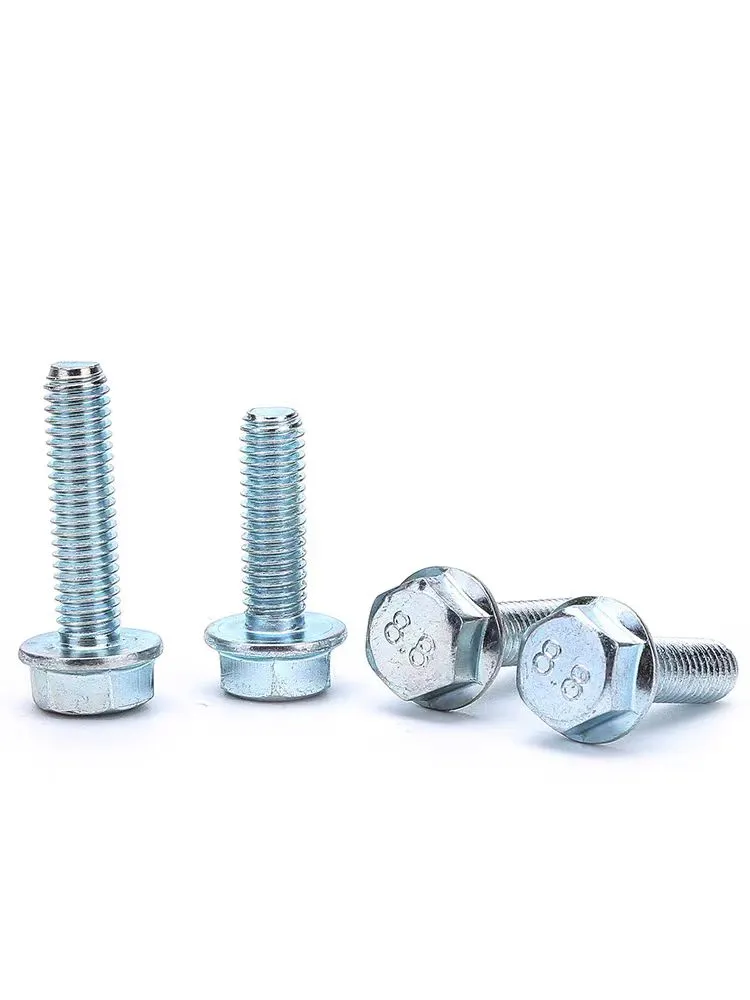

Hexagonal Machine Screw Nut Specifications and Applications for Various Industries
Nov . 06, 2024 12:38 Back to list
Hexagonal Machine Screw Nut Specifications and Applications for Various Industries
Understanding Hex Machine Screw Nuts An Essential Component in Modern Engineering
In the world of engineering and construction, certain components play pivotal roles in ensuring the reliability and strength of structures and machines. Among these essential components are hex machine screw nuts. These seemingly unassuming pieces of hardware are crucial in various applications, from everyday household items to complex industrial machinery. This article delves into what hex machine screw nuts are, their applications, materials, and significance in modern engineering.
What is a Hex Machine Screw Nut?
A hex machine screw nut is a type of fastener that typically has a hexagonal shape, enabling it to be easily tightened or loosened using a wrench or similar tool. These nuts are designed to be used with machine screws, which are threaded rods that can be used in a variety of applications. The nut is placed on the screw's threaded end and, when tightened, it secures the assembly by holding the components together.
The hexagonal shape of the nut provides six flat sides, allowing for a better grip and torque application compared to other shapes. This feature makes hex nuts ideal for applications where high strength and resistance to loosening under vibrations are required.
Applications of Hex Machine Screw Nuts
Hex machine screw nuts are found in countless applications across various industries. Some common applications include
1. Automotive Industry In automotive engineering, hex nuts are used in assembling various parts of vehicles. They ensure that components like the engine, wheels, and suspension systems remain securely fastened under dynamic conditions.
2. Construction In construction, hex nuts play a crucial role in assembling steel frames, bridges, and buildings. They are essential for ensuring that structural elements maintain their integrity and can withstand heavy loads.
3. Manufacturing Many machines in factories and processing plants rely on hex nuts for their assembly and maintenance. They are found in conveyor systems, assembly lines, and other critical machinery.
4. Electronics In the electronics field, where precision is key, hex nuts are used to secure circuit boards and components in place, ensuring durability against vibrations and shocks.
hex machine screw nut

Materials Used for Hex Machine Screw Nuts
Hex nuts can be made from various materials, each offering different properties to suit specific applications. Common materials include
- Steel Steel hex nuts are popular due to their strength and durability. They often come in various grades, such as Grade 2, Grade 5, and Grade 8, indicating their tensile strength and suitability for different applications.
- Stainless Steel Offering excellent corrosion resistance, stainless steel hex nuts are ideal for use in environments exposed to moisture and chemicals. They are widely used in marine applications and food processing industries.
- Brass Brass hex nuts are less common but are used in applications requiring good electrical conductivity and corrosion resistance.
- Plastic In some lightweight or corrosion-sensitive applications, plastic hex nuts provide a viable alternative, although they may have lower strength compared to metal options.
Significance in Modern Engineering
Hex machine screw nuts are integral to modern engineering, ensuring that assemblies maintain both functional integrity and safety. Their ease of use, adaptability to various applications, and ability to withstand wear and corrosion make them a staple in manufacturing, construction, and other engineering disciplines. The importance of these components is often understated; however, without them, the reliability of countless machines and structures would be at risk.
As technology advances, the designs and materials of hex nuts continue to evolve. Innovations such as coated nuts and specialty alloys are enhancing their performance and expanding their applications even further.
Conclusion
In summary, hex machine screw nuts are critical components that underpin the reliability and performance of modern engineering solutions. Their simple design belies their importance in securing and stabilizing parts across diverse industries. As engineers and manufacturers continue to innovate, hex nuts will undoubtedly evolve, but their fundamental role as a fastening solution will remain indispensable. Understanding the significance of these fasteners can help us appreciate the intricate workings of the machines and structures that shape our lives.
Latest news
-
Premium Fasteners Manufacturer | AI-Driven Solutions
NewsAug.01,2025
-
Hot Dip Galvanized Bolts - Hebei Longze | High Strength, Corrosion Resistance
NewsAug.01,2025
-
High-Strength Hot Dip Galvanized Bolts - LongZe | Corrosion Resistance, Custom Sizes
NewsAug.01,2025
-
Best Self Tapping Screws for Drywall - Fast & Secure Installation
NewsJul.31,2025
-
High-Strength Hot Dip Galvanized Bolts-Hebei Longze|Corrosion Resistance&Customization
NewsJul.31,2025
-
Hot Dip Galvanized Bolts-Hebei Longze Metal Products|Corrosion Resistance&High Strength
NewsJul.31,2025

